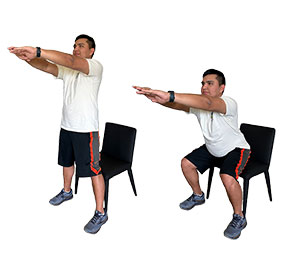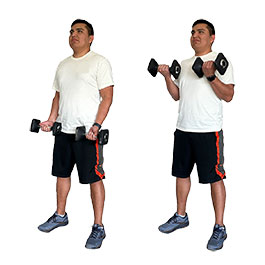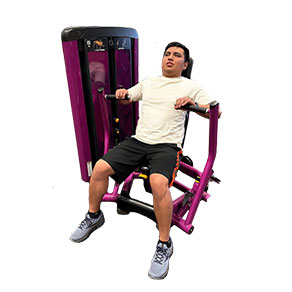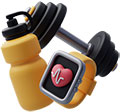Increasing Muscle Strength
Increasing Muscle Strength
WHAT IS STRENGTH TRAINING?

As we age, we tend to lose muscle mass and strength. Strength training can build muscle, improve balance, and help us manage chronic conditions like arthritis, back pain, obesity, heart disease, and diabetes.
Strength training makes your muscles work against an outside force. The force can be from your body weight, resistance machines, resistance bands, or hand-held weights.
Share
View Handout [PDF – 1 MB]
BENEFITS OF STRENGTH TRAINING








BASICS FOR STARTING

If possible, begin training with a certified fitness professional or physical therapist to reduce the risk of injury. They can assess your needs, choose the right exercises, teach you the safest exercise methods, and monitor your progress. One resource is the Native American Fitness Council.
Adults may begin strength training 2 to 3 days a week. Include the major muscle groups in your routine: legs, hips, back, abdomen, chest, shoulders, and arms.
If you have not done strength training before, use your body weight for resistance, such as push-ups or sit-ups. Build your strength using exercise bands before trying free weights or resistance machines to prevent injury.
Strength training can be performed using free weights, resistance machines, flexible resistance bands or tubing, or your body weight, as shown below:

Chair Squat

Free Weights

Resistance Machines

Resistance Bands or Tubing
Follow these general guidelines for strength training:

- Warm up with a short walk
- Choose 6-8 different exercises
- Perform each exercise with 10-15 repetitions per set
- Do 2 to 3 sets for each exercise
- Rest for at least 60 seconds between each set
- Skip 1 or 2 days between workouts
- Stay hydrated by drinking water before and after your workout
If you have excessive shortness of breath, chest discomfort, or unusual fatigue during or after exercise, contact your healthcare provider or call 911.


